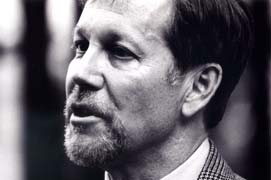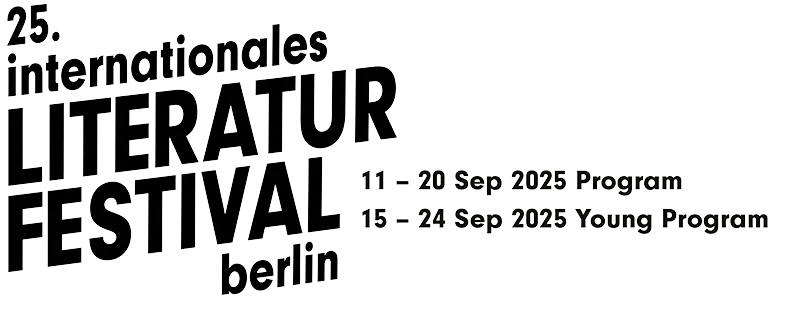
Dana Gioia
In 2003, poet and critic Dana Gioia became the first creative artist to serve as Chairman of the National Endowment for the Arts, the largest U.S. funder of the arts. His revitalisation of the once troubled agency has yielded a significant increase in the annual budget. Many new initiatives were created to serve Americans in both large cities and small towns, while maintaining the highest standard of artistic excellence. Popular programs such as »Shakespeare in American Communities« bring productions of Shakespeare to students who have never before experienced professional live theatre. The NEA Jazz Masters program honors great living jazz musicians by creating national tours, media documentaries, and school programs that reach millions of Americans. Other projects include efforts to reverse the decline of literary reading in the United States, as well as projects to increase the number of books translated into English and published in the U.S. Gioia also serves as the head of the U.S. National Commission to UNESCO.
A working-class Californian of Italian and Mexican descent, Gioia was born in 1950 in Los Angeles. He was the first in his family to go to university. He received a B.A. in Literature and an MBA in Business from Stanford University, and an M.A. in Comparative Literature from Harvard University. Deciding not to become a university professor, Gioia instead pursued a career in business in the unorthodox model of American poets Wallace Stevens and T.S. Eliot.
In 1977 Gioia moved to New York to work, where he eventually became a vice president at General Foods Company. At night he wrote poetry, reviews, and essays. His debut poetry collection, »Daily Horoscope« (1986), confirmed Gioia’s reputation as the central figure in »New Formalism«, a literary movement that seeks to bring back to life the rhythm and meter of American lyric. Gioia became a public figure on the publication of his essay, »Can Poetry Matter?«, which appeared in 1991 in »Atlantic Monthly« and ignited a decade-long nationwide debate. In his essay, Gioia expressed the thesis that contemporary American poetry no longer serves its traditional audiences but had become increasingly insular and academic.
Gioia’s third volume of poetry, »Interrogations at Noon« (2001), received the American Book Award. The book includes adaptations of Seneca, Rilke, and Valerio Magrelli, as well as formal poems, free verse, songs, and elegies. Also contained within the collection are three songs by Gioia from »Nosferatu« (2001), an operatic libretto based on Murnau’s famous silent film.
In 1992, Gioia left business to devote himself full-time to literature. In addition to editing numerous anthologies, Gioia teamed up with poet X.J. Kennedy to produce a best-selling college textbook, »An Introduction to Poetry« (1994), now in its eleventh edition. Gioia co-founded two distinguished literature conferences on the teaching and writing of poetry. The West Chester University Poetry Conference on Form and Narrative, now in its eleventh year, has become the largest annual poetry conference in the U.S.
Gioia now lives in Washington, D.C. but still keeps a home in the wine country of northern California.
© international literature festival berlin
The Gods of Winter
Peterloo Poets
Cornwall, 1991
Can Poetry Matter?
Greywolf Press
Saint Paul, 1992
Interrogations at Noon
Greywolf Press
Saint Paul, 2001
Nosferatu
Greywolf Press
Saint Paul, 2001
Daily Horoscope
Greywolf Press
Saint Paul, 2002
Californian Poetry
Heyday Books
Berkeley, 2003
Disappearing Ink
Greywolf Press
Saint Paul, 2004
Barrier of a Common Language
The University of Michigan Press
Ann Arbor, 2005
Übersetzer: Jürgen Brộcan
